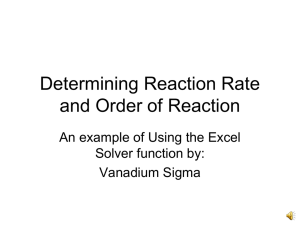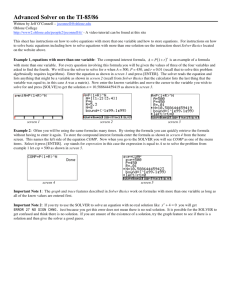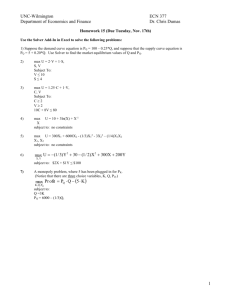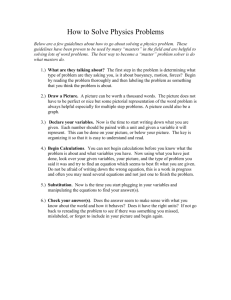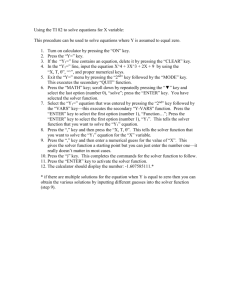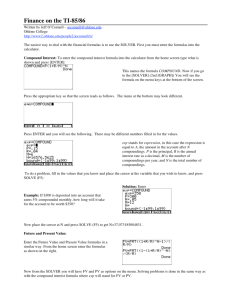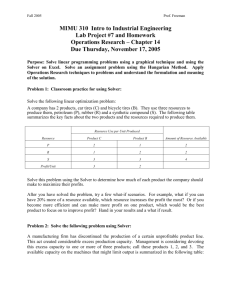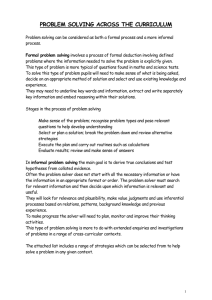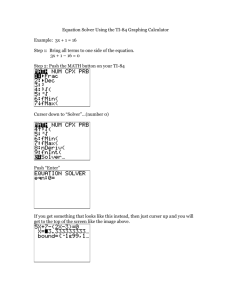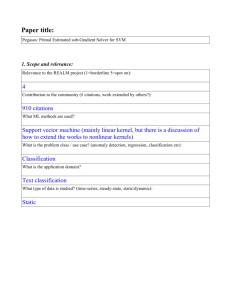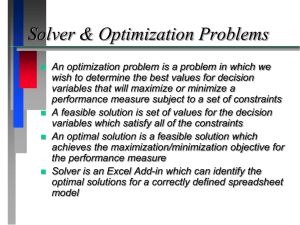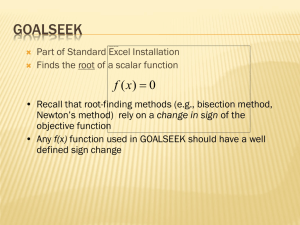Advanced Solver on the TI-83/84
advertisement
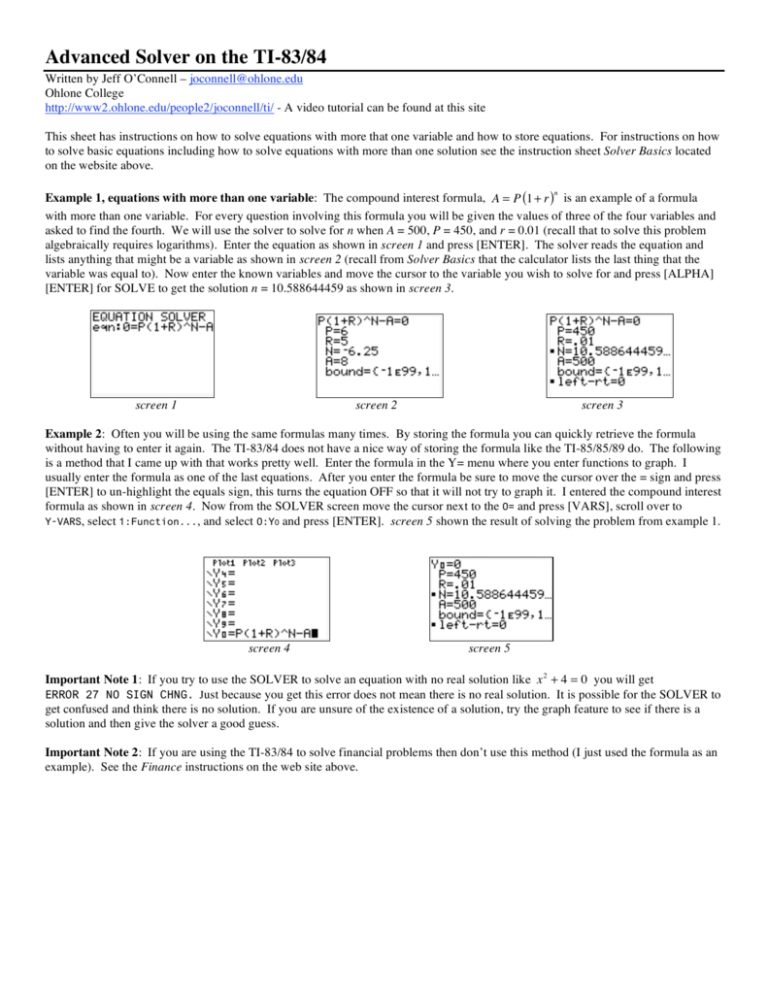
Advanced Solver on the TI-83/84 Written by Jeff O’Connell – joconnell@ohlone.edu Ohlone College http://www2.ohlone.edu/people2/joconnell/ti/ - A video tutorial can be found at this site This sheet has instructions on how to solve equations with more that one variable and how to store equations. For instructions on how to solve basic equations including how to solve equations with more than one solution see the instruction sheet Solver Basics located on the website above. Example 1, equations with more than one variable: The compound interest formula, A = P (1 + r ) is an example of a formula with more than one variable. For every question involving this formula you will be given the values of three of the four variables and asked to find the fourth. We will use the solver to solve for n when A = 500, P = 450, and r = 0.01 (recall that to solve this problem algebraically requires logarithms). Enter the equation as shown in screen 1 and press [ENTER]. The solver reads the equation and lists anything that might be a variable as shown in screen 2 (recall from Solver Basics that the calculator lists the last thing that the variable was equal to). Now enter the known variables and move the cursor to the variable you wish to solve for and press [ALPHA] [ENTER] for SOLVE to get the solution n = 10.588644459 as shown in screen 3. n screen 1 screen 2 screen 3 Example 2: Often you will be using the same formulas many times. By storing the formula you can quickly retrieve the formula without having to enter it again. The TI-83/84 does not have a nice way of storing the formula like the TI-85/85/89 do. The following is a method that I came up with that works pretty well. Enter the formula in the Y= menu where you enter functions to graph. I usually enter the formula as one of the last equations. After you enter the formula be sure to move the cursor over the = sign and press [ENTER] to un-highlight the equals sign, this turns the equation OFF so that it will not try to graph it. I entered the compound interest formula as shown in screen 4. Now from the SOLVER screen move the cursor next to the O= and press [VARS], scroll over to Y-VARS, select 1:Function..., and select O:YO and press [ENTER]. screen 5 shown the result of solving the problem from example 1. screen 4 screen 5 Important Note 1: If you try to use the SOLVER to solve an equation with no real solution like x 2 + 4 = 0 you will get ERROR 27 NO SIGN CHNG. Just because you get this error does not mean there is no real solution. It is possible for the SOLVER to get confused and think there is no solution. If you are unsure of the existence of a solution, try the graph feature to see if there is a solution and then give the solver a good guess. Important Note 2: If you are using the TI-83/84 to solve financial problems then don’t use this method (I just used the formula as an example). See the Finance instructions on the web site above.
